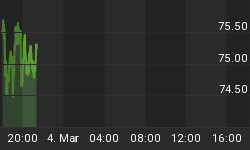Gold Stuck in "Narrow Range", Forecasts of Post-Summer Surge Battle "Finite Investors Pool"
THE PRICE OF GOLD pushed higher overnight in Asia and early Tuesday in London, unwinding half of yesterday's 1.5% drop as the US Dollar eased back, together with world stock markets.
Crude oil retreated from Monday's new 2009 highs, while government bond prices rose.
Ten-year German Bund yields ticked down to 3.29%. Ten-year US Treasuries yields fell to 3.46%.
"Large selling on the [Gold Futures] electronic market helped break through stops" says Swiss refinery group MKS of yesterday's $14 drop, noting that "the market is currently illiquid."
"We do not foresee anything that should push gold out of its recent narrowing range [of] 925.90 to 971.68," agrees London market-maker Scotia Mocatta.
"Technical studies are generally neutral...There is no clear trend."
Looking at previous dull summers in the gold market, "This is likely a repeat of Aug. 2005 and Aug. 2007 when the market broke significantly higher in September," reckon Barclays' analysts in New York, quoted today by Bloomberg.
Five other finance houses believe that Gold Bullion will trade above $1,000 an ounce between Oct. and the end of the year. "We are looking for a breakout above $1,033 next month," adds Barclays, which sees gold breaking through that current all-time Dollar record, set when Bear Stearns collapsed in March 2008.
"Gold, to us, has already drawn in the bulk of those players who want exposure to the yellow metal," cautions Edel Tully at London dealers Mitsui.
"The investor pool is not infinite [and] net long positioning in the [futures] market remains excessive. The Gold ETF players acted as net buyers last week, but by quantities that fail to ignite much excitement.
"This grouping has very limited interest in adding to their already extensive long position."
Global gold ETF holdings rose one tonne last week from a five-month low of 1,250 tonnes. Speculative players in US Gold Futures and options cut their bullish bets, meantime. But as a group, they continued to hold almost nine up-bets for every short contract they held on the metal.
The five-year average for hedge funds and other large speculators is nearer four bullish contracts for each bearish bet on gold.
"Gold is very much still in a sideways consolidation pattern between $920-$980," reckons Adrian Koh at Phillip Futures in Singapore, speaking to Reuters this morning.
"The Dollar's still the main driver behind gold's movement."
Early Tuesday the Dollar slipped back to $1.4330 per Euro, and fell beneath ¥94 against the Japanese currency - a 13-year low when first reached in late 2008.
The Dollar held steady against the ailing Pound Sterling, however, which sank to a 12-week low against the Euro on news of much weaker-than-expected UK credit data.
The British Bankers' Association said net mortgage lending grew by just £1.6 billion ($2.6bn) in July, the smallest month-on-month increase this decade.
Lending to non-financial firms fell £4.1bn ($6.7bn), the fastest drop since 2006.
The Gold Price in British Pounds rose as Sterling, touching £579.50 an ounce and erasing all of Monday's 1.1% loss.
In the United States, meantime, president Barack Obama was set to revise his public deficit forecast to an average $800 billion each year until 2019, adding $2 trillion to the additional $7trn forecast in Feb.
That will take the Treasury's outstanding debt to 82% of the annual US economy, analysts said, matching levels last seen during WWII.
President Obama will also offer US Federal Reserve chief Ben Bernanke a second term as central-bank chief today, according to sources.
Dr. Bernanke - who has taken "extraordinarily aggressive efforts to fight the economic crisis" in the words of the Financial Times, slashing interest rates to zero and injecting $2trn into the financial system - is "probably the right choice" says head of the Senate banking committee, Chris Dodd.
"[But] what Bernanke's supporters happily gloss over is the policy role that he played in both the run-up to and in the deepening of the country's worst economic recession," says former IMF deputy director and current research fellow at the American Enterprise Institute Desmond Lachlan.
"It would also validate the skeptical worldview...that, in Washington, nothing succeeds so well as failure."















